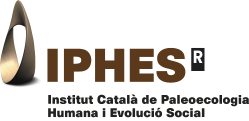NewsNext Previous
Twelve students from the URV present their Erasmus Mundus Master thesis in Quaternary Archaeology and Human Evolution
Students from many different countries defend their work on 16th and 17th September at the Universita ‘degli Studi di Ferrara (Italy)
Among the studied topics are the Barranc de la Boella, Abric Romani, Atapuerca, occupations in Tunisia or the rock art of Tanzania
Coinciding with the beginning of the course, a total of 26 theses of the Erasmus Mundus Master in Quaternary Archaeology and Human Evolution offered at the Rovira i Virgili (URV), twelve of which have been realized by students of this university from diverse countries as: Algeria, Eritrea, Tanzania, Tunisia, Cuba, Italy, Spain, France and Portugal. The defense is presented on 16th and 17th September at the Universita’ degli Studi di Ferrara (Italy).
Among the topics that focus the interest of these research is the hominid paleodiet at the Cueva Mirador de Atapuerca (Burgos) 5,000 years ago, new applications of computed tomography applied to paleoanthropology, competition between hominins and carnivores during the Pleistocene based on the Barranco de la Boella (La Canonja, Tarragona); paleontological study of the large Quaternary mammals at Oued Sarrat (Northwest Tunisia), the ecological environment of the human occupations in Level O at Abric Romani (Capellades, Barcelona) from micromammals and their accumulation process, rock art of Tanzania, retouched artifacts analysis of level III at Cova de Teixoneres (Moià, Barcelona) or the production and distribution of flint industry in the Abric Romani P level.
The Erasmus Mundus Master in Quaternary Archaeology and Human Evolution is done in partnership with other European institutions, as the Universita’ degli Studi di Ferrara (Italy), Muséum National de Historia Natural (Paris, France), Instituto Politécnico de Tomar and Universidade de Trás-os-Montes y Alto Duero (both in Portugal) and the University of Diliman (Philippines), but the students are from many different countries.
Internationalization
The first thesis of this Master were read in 2006 and more than 100 research papers have been completed until now, many of which are based on different projects where the Institut Català de Paleoecologia Humana i Evolució Social (IPHES) participates, in the commitment of this center to link teaching with research, field work and socialization.
The Erasmus Mundus Master in Quaternary Archaeology and Human Evolution began in the 2004-2005 academic URV course, thanks to the research carried out by the IPHES, that participates in the main worldwide projects of its field. This year, the European Commission notified the renewal under the new Erasmus+ program for three more years, ensuring the continuity of the guarantee and quality that represents being part of the Erasmus Mundus program for the students training and the internationalization of the URV.


